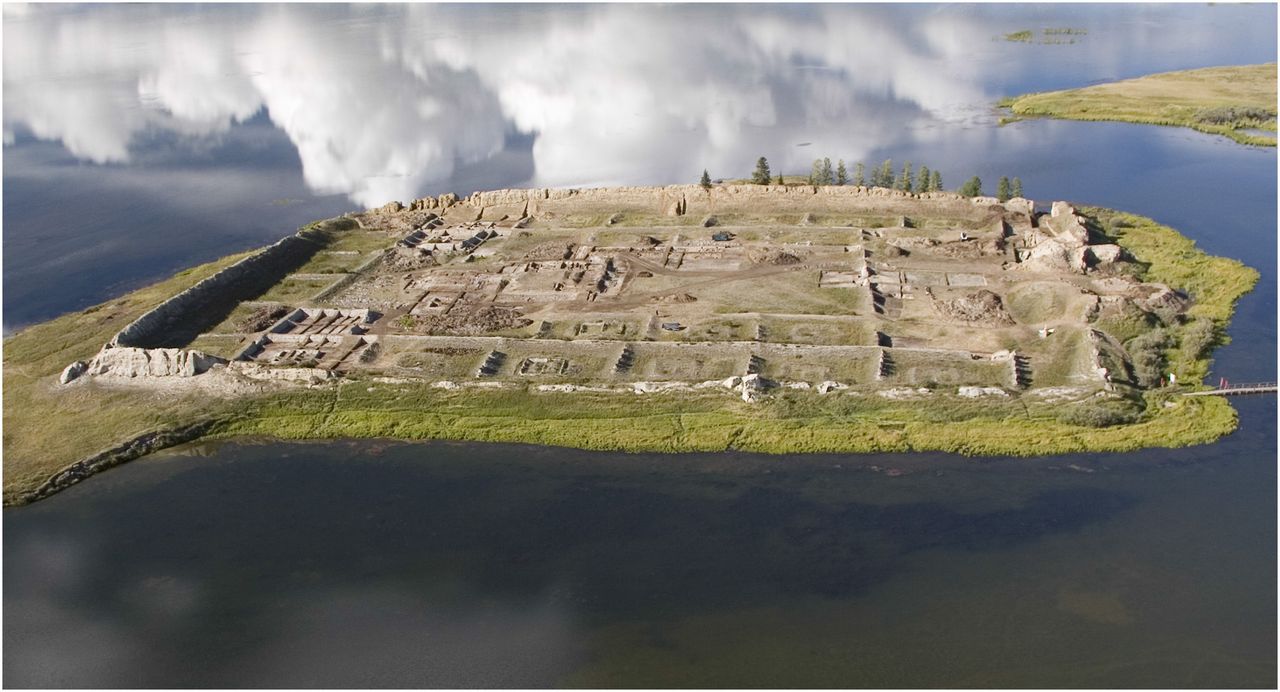UK article: Experts in carbon dating solve centuries-old mystery

No one knew why the mysterious fortress of Por-Bazhyn had been built or why it had never been used. But this week, UG scientists presented the solution to the mystery, thanks to a new method of carbon dating.
By Christien Boomsma - June 10 at 9.19 A.M.
The island fortress of Por-Bazhyn, deep in Siberia’s permafrost, is almost as mysterious as Machu Picchu. It may not be as well-known as its Peruvian twin, but scientists have been fascinated by this eighth-century clay building surrounded by twelve-metre high walls for decades. Who built it? Was it a palace? A fortress? A monastery? Why doesn’t it have any fireplaces? Why doesn’t it look like anyone ever lived there?
In an article published in PNAS this week, UG scientists provide the definitive answer: they’ve determined the building was constructed in the summer of 777. They used a new method, looking for carbon-14 isotope peaks in tree rings. These peaks were caused by rare solar flares, once of which occurred in 775 and another in 994.
| Last modified: | 11 June 2020 2.24 p.m. |
More news
-
13 May 2024
Trapping molecules
In his laboratory, physicist Steven Hoekstra is building an experimental set-up made of two parts: one that produces barium fluoride molecules, and a second part that traps the molecules and brings them to an almost complete standstill so they can...
-
29 April 2024
Tactile sensors
Every two weeks, UG Makers puts the spotlight on a researcher who has created something tangible, ranging from homemade measuring equipment for academic research to small or larger products that can change our daily lives. That is how UG...
-
16 April 2024
UG signs Barcelona Declaration on Open Research Information
In a significant stride toward advancing responsible research assessment and open science, the University of Groningen has officially signed the Barcelona Declaration on Open Research Information.
